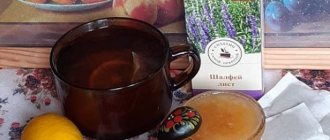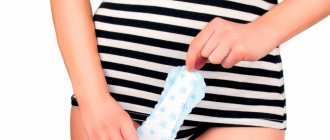Is it possible to take mint while breastfeeding?
During the lactation period, doctors do not advise women to use herbs. Mint is a plant that can still be included in the diet, but after consulting a doctor. Pediatricians do not recommend drinking it during lactation: several cups of this drink can cause a decrease in milk supply.
If mommy cannot refuse aromatic grass, she should choose a spikelet variety. It has a stimulating effect on breast milk production.
Doctors also advise nursing women to include lemon balm in their menu. This herb reduces tension, having a beneficial effect on mother and baby.
You should start drinking lemon balm tea with caution, because... it can cause allergies in infants.
Impact on mom
Following traditional medicine recipes, mint is used to treat colds. The green leaves of the fragrant plant calm the nervous system, increase vitality and are a strong antioxidant. The essential oils contained in the plant have an anti-inflammatory effect and reduce the risk of developing diseases of the gastrointestinal tract. This perennial is considered a natural antibiotic because it is effective in combating various harmful microorganisms and fungal infections.
Peppermint has a high menthol content. This element refreshes, gives vigor and provokes a one-time influx of mucous secretions. With one-time use, the young mother feels a surge of milk. But frequent consumption of peppermint tea helps lower blood pressure. The sedative effect of menthol causes drowsiness and apathy.
Drinking large amounts of herbal tea every day negatively affects breast milk production. This remedy can be used to complete lactation. Another type of mint has the opposite effect. The leaves of the spikelet or curly fragrant grass differ in shape and composition. The main substance is carvone. The compound helps increase the volume of milk in the mammary gland. Low menthol content reduces the risk of developing artificial hypotension.
We recommend that you familiarize yourself with And yet, pumpkin is a vegetable or berry or maybe a fruit
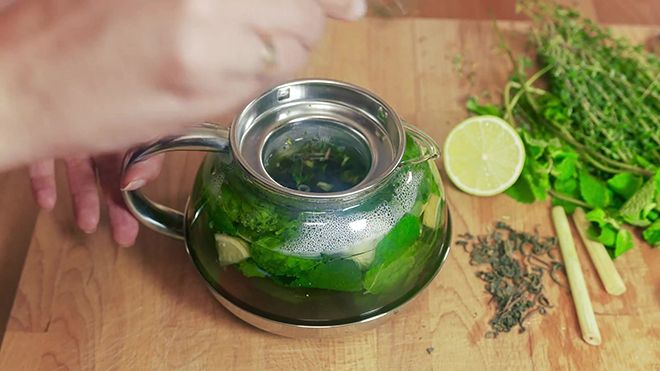
However, during the period of feeding a child, it should be remembered that any medicinal plants must be used with caution and only on the recommendation of a doctor.
How does mint tea affect lactation?
During breastfeeding, every caring mother should pay special attention to her menu. And if during pregnancy a woman allowed herself to eat whatever she wanted, now this cannot be done.
During breastfeeding, mint should be present in the diet in moderation, and especially in the first month after the birth of the baby. This plant is introduced gradually - you need to monitor the child’s condition and your well-being.
If rashes and redness appear on the baby's skin, this plant should be discarded. Otherwise, there is a high probability of developing a severe allergy.
If no negative effects have been noticed, you can safely drink tea with menthol - it will promote milk production, normalize the baby’s intestines, and relieve him of painful colic.

Effect of mint on breast milk
“Does mint affect the body and the lactation process?” — the answer to this question is ambiguous. The main thing is to know that the volume of natural food produced by the baby is directly dependent on:
- good organization of feeding;
- correctness and frequency of application;
- feedings at night, because it is during these hours that the hormone prolactin, which is responsible for the quality of lactation, is produced.
A number of herbs have an effect on the lactation process, but their effect is not the main one. With well-established, full-fledged feeding, moderate consumption of mint will not significantly affect the volume of natural food produced by the baby. A few leaves of this plant will not reduce the amount of milk, but will bring benefits and pleasure to the mother.
We recommend reading: Dates for breastfeeding
Peppermint partially affects the baby's natural food production because it contains menthol. It is able to influence the mucous membranes and their secretion, which includes milk.
The substances contained in mint have the properties of stimulating the process of production of natural food for infants, but for one-time use. Menthol is able to temporarily dilate blood vessels, which provides a rush of milk. Long-term frequent consumption leads to a reduction in lactation. Most often, lactation consultants recommend drinking mint regularly during weaning to reduce lactation.
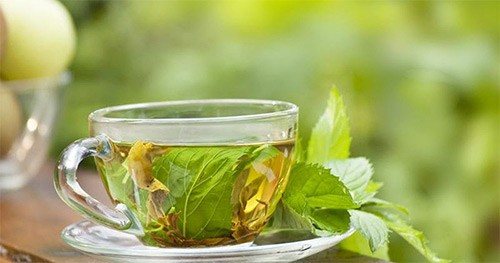
Also, after regular consumption of mint, menthol can cause the development of an allergic reaction in infants. A large amount of menthol can lower blood pressure. Menthol also has a negative effect on the baby’s well-being. Through milk, the active component enters the body, causes hypotension, disrupts the functioning of the heart, interrupts the rhythm, and provokes drowsiness.
Green tea is quite healthy because it contains valuable substances that have a beneficial effect on the body. In addition, it has an antioxidant effect. It is worth noting that the specific gravity of caffeine in green and black teas is the same, and sometimes even higher. GW consultants recommend avoiding the consumption of caffeine-containing drinks. Does green tea with mint have any effect on the baby while breastfeeding? The answer is yes. It is recommended to switch to the use of herbal teas, but take those herbs that are not prohibited during lactation. These herbs include chamomile, oregano, anise, fennel, and linden.
If the mother cannot exclude the use of green tea, it should be drunk in moderation and follow the recommendations for proper brewing. To do this, pour boiling liquid over the tea, wait a minute and drain. Refill and leave for 5 minutes. This will reduce the amount of caffeine.
How can a nursing mother definitely use mint?
Official science can still answer the question of whether the flow of milk from medicinal herbs actually increases or not. However, there is a way to use peppermint oil that has been researched in detail. And what is most surprising is that it was found to be effective during the lactation period.
If a woman suffers from cracked nipples, you can get rid of them using regular peppermint oil. It should be applied to the problem area after each feeding. Before the next application to the breast, the remaining oil must be washed off.
The procedure must be repeated until the nipples heal. This is a very effective and safe method.
How often should you drink mint drink?
During the lactation period, drinking one cup of mint tea per week is allowed. You need to take into account that the cup should not be too large: a standard 200 ml mug is the most suitable volume.

Tea with mint during breastfeeding will only be beneficial if trying a few sips does not have any negative effect on the baby. This is a fundamentally important point.
Peppermint tea during breastfeeding
In fact, there are up to 25 different types of mint. But we use only two representatives of this broad group for drinks - peppermint and spearmint. As for the first type, the leaves of such a plant contain the potent substance menthol. It causes hypotension when consumed regularly, and for the small body of an infant, this is fraught with disturbances in the functioning of the heart muscle and, as a result, death at an early age.
If you are wondering: is mint tea ok while breastfeeding or not? My answer to you is no. Among other things, mint causes a decrease in lactation levels, and the mother practically loses milk. So tell me, is such a sedative worth sacrificing a way to feed a baby healthy? Of course not.
As for the use of spearmint, it does not cause such harm to the body and lactation, since it contains another active substance. However, it has a slightly different aroma and may not be to the taste of young mothers.
If you still decide to introduce mint tea into your diet, then start doing this no earlier than the child turns three months old, and also do not drink more than one cup of this drink once a week.
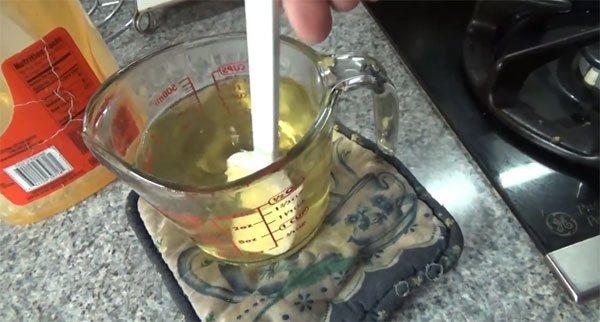
Valuable properties
What are the important and beneficial characteristics of tea with the addition of mint:
- Has an analgesic effect for headaches.
- Helps fight digestive system problems.
- Reduces blood pressure.
- Has an anti-cold effect.
- Has sedative characteristics.
- Eases PMS.
- Promotes weight loss by interrupting the desire to eat something sweet.
- Has an antimicrobial effect.
- Stimulates the production of digestive enzymes.
Minuses
As always, there are some negative properties of this drink:
- Menthol, which is contained in mint, can reduce lactation.
- With frequent consumption of such tea, hypotension develops, both in the mother and in the baby.
- The list of mint is a strong allergen, so you should be especially careful with its use.
- Drinking green tea with the addition of mint leaves is contraindicated. This drink has a strong diuretic effect, which can cause fluid to be washed out of the body, up to the onset of dehydration in the baby.
Based on all of the above, it turns out that you should not drink such tea, but if your addiction is strong and you cannot control yourself, then drink no more than one cup, and only once a week.
I really love mint, its smell, aroma, I adore drinks with its addition. But when I gave birth to a child, I decided to check with the doctor about tea with mint added. She advised me to refrain from drinking this drink until the end of the breastfeeding period. Therefore, I decided that I could wait out this time. And I postponed my desires until later, because the correct development of the baby is more important to me, and I did not want to create unnecessary risks for my son of allergies or tummy problems.
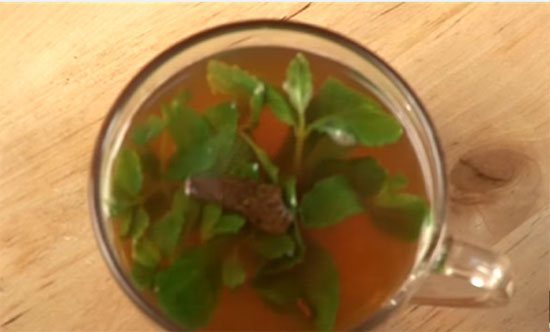
Types of mint and their properties
It is important to note that different types of mint can give completely opposite effects. For example, spearmint, due to its low menthol content and high concentration of kavron, has a stimulating effect on the production of breast milk.
Drinking mint tea while breastfeeding will not have a lasting effect. You can drink it for 3 to 5 days. Further use is pointless - the body gets used to it and milk stops being produced. Not all mothers know about this.
Peppermint has been linked to decreased milk production. Therefore, it is worth giving up this herb, especially for those women who have insufficient milk. Otherwise, there is an increased risk that it will disappear altogether.
Peppermint can be safely consumed during the period when the baby begins to wean: a woman can drink tea as much as she wants. This will only help transfer the baby to artificial feeding.
Drinking mint tea in large quantities can lower blood pressure. Therefore, women who take it in large quantities should monitor their well-being. If the pressure drops to 90x60, in order to avoid headaches and other problems, it is better to refuse the drink.
Frequently asked questions about the benefits and harms of mint during breastfeeding.

Question: “Can a nursing mother have tea with lemon balm or mint?”
Mint tea is allowed for breastfeeding, but subject to a number of rules. In order not to harm the baby and breastfeeding, it is better to choose lemon (lemon balm) or garden mint. These types of mint have a beneficial effect on the production of breast milk and help the mother cope with the onset of postpartum depression, improving her overall condition. You should avoid using peppermint, as a large amount of menthol can cause cessation of lactation.
Question: “Can I take mint while breastfeeding in the first month after giving birth?”
The first month of a baby's life is a difficult period. A small, fragile organism is just beginning to get used to its new environment. In order to facilitate its adaptation, the mother is advised to exclude the introduction of foods and drinks into her diet that can cause colic. There is no reliable information that mint during breastfeeding in the first month of a baby’s life can harm him or reduce lactation. But in order to reduce possible risks, mothers are advised to refrain from using it in the first month.
Question: “Can mint harm breastfeeding in the first month after childbirth?”
In the first month after childbirth, many changes occur in a woman’s body, and her lactation begins to improve. Peppermint in large quantities can have a negative effect on this. To avoid this, a nursing mother should avoid using peppermint. It is better to start using other types of mint from the second month of the baby’s life.
Question: “In what form is mint allowed to be consumed?”
It is best to use mint in drinks. It doesn't matter whether it will be used with tea or a cool, refreshing drink. It is strictly forbidden to chew fresh mint leaves, as the essential oils contained in them can cause an allergic reaction .
Question: “What can replace mint tea?”
A good substitute for classic mint tea would be green and chamomile tea. It is better to drink green tea in the morning, as it has a tonic effect. By adding just a couple of mint leaves for a few minutes, you will receive an unforgettable boost of energy and strength.
Using mint with chamomile, you will get a good sedative that does not cause allergies and has a strong antiviral effect.
Plant varieties
Mint during breastfeeding is a product that should be consumed with extreme caution. Only spikelet and lemon varieties can be included in the diet. They are considered the safest for both the mother and the still fragile baby.
Consultation with a pediatrician is required.
The doctor will rule out any contraindications and tell you in detail how to properly include this plant in your diet, as well as what you need to pay attention to.
conclusions
We found the answer to the question of whether you can take mint while breastfeeding or not. Now let's summarize:
- During the lactation period, this plant can be included in the diet only if it does not cause allergies in mother and child.
- Spearmint has a stimulating effect on milk production. But there is no point in drinking this tea for more than 4 days.
- Pepper reduces milk flow. It is better to avoid using it.
- If a child develops an allergy, it is necessary to exclude this herb from the menu.
- Using a medicinal plant as recommended by a doctor will help avoid health problems and will be the key to successful breastfeeding.

